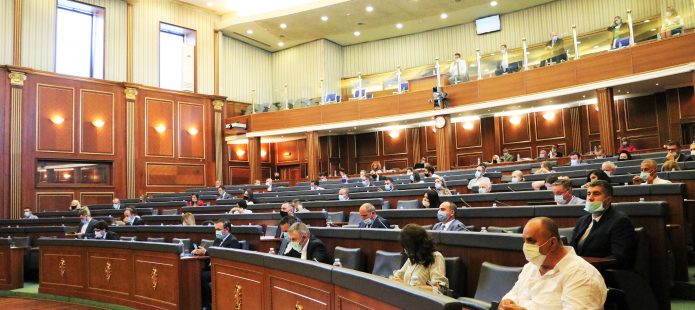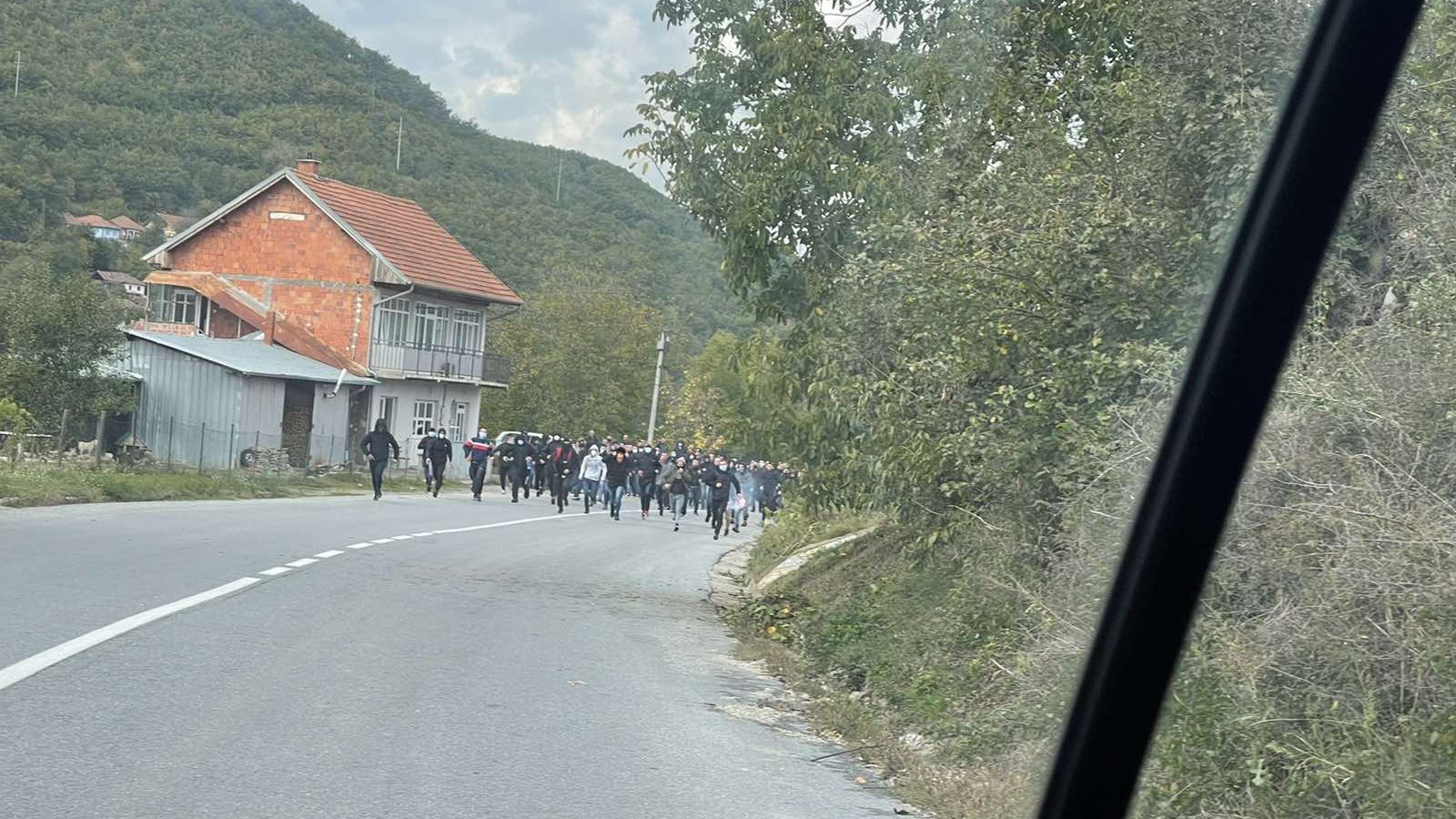

Kosovo continues to stall in politics, justice, the economy and public administration, although it is making progress in the fight against terrorism, the Progress Report published on Tuesday says.
Lack of political stability in Kosovo, political clashes in the Assembly and the pandemic are some reasons for Kosovo’s lack of progress in many areas, the European Commission’s Progress Report published on Tuesday said.
The Commission publishes Progress Reports once a year for the six countries of the Western Balkans and Turkey.
The report on Kosovo says that most of the period it covers, from 2020 to mid-2021, was characterized by a “polarizing political atmosphere” in Kosovo.
It said this political instability limited the activities of the Assembly in terms of adoption of laws and led to a stalemate over reforms related to the European Union.

“For a large part of the reporting period, the polarised political atmosphere, the lack of an effective government majority and the lack of a quorum severely affected decision-making in the Assembly,” the report recalled.
During the acceptance of the Report by the EU Chief in Kosovo, Tomas Szyoung, Prime Minister Albin Kurti presented a different version of events – deeming the first six months of his second government a time of stability.
“In these six months in government, we’ve had institutional stability, democratic legitimacy and a high level of trust in the institutions by citizens who have made great social progress,” Kurti insisted.
The Progress Report is one of the most important documents produced by the club that Kosovo wishes to join, assessing the country’s overall economic, political and social situation and fitness for eventual membership.
Despite serious progress being sought from Kosovo in public administration reforms, the report said, and despite some preparations, “no progress has been made”. One reason given for that was the “frequent changes of government”.
Kosovo has had three governments in only two years. Vetevendosje leader Kurti’s first government, installed on February 3, 2020, was overthrown by a no-confidence motion by its coalition partner on March 25 that year.
Less than six months later, on June 3, MPs voted in a complex coalition led by Avdullah Hoti. Following early parliamentary elections on February 14, 2021, Kurti’s Vetevendosje took over again, this time together with the “Guxo” list of Vjosa Osmani.
Kosovo and Serbia must reach a final deal

The Progress Reports for both countries oblige Serbia and Kosovo to work towards reaching a comprehensive and legally binding agreement on normalization of relations.
To help normalize relations with Serbia, Kosovo must make constructive efforts to implement all past agreements with Serbia in the framework of the EU-facilitated dialogue.
The Commission sees reaching an agreement between the two countries as urgent and essential for both states to make progress towards European Union integration.
“Serbia must make further significant efforts to implement all past agreements and contribute to reaching an agreement on the comprehensive, legally binding normalization of relations with Kosovo,” the report noted.
On July 19, the last round of dialogue between Kosovo and Serbia took place, attended by Prime Minister Kurti and the President of Serbia, Aleksandar Vucic. The dialogue started in March 2011, initially at the technical level. In October 2012, the process shifted to the political level. Achievements have been modest.
Contradictions over ways to handle corruption in north

The report assessed that the situation in Serb-run northern Kosovo remains challenging in terms of corruption and organised crime.
This assessment comes after the High Representative of the European Union for Foreign Affairs and Security Policy, Josep Borrell, criticised the Kosovo police’s recent anti-smuggling operation in the north, which drew a violent response from locals.
The police action on October 13 met violent protests from some Serbs and drew strong condemnation from Serbia.
Borrell demanded that the action be stopped, calling the action a threat to stability.
“The violent incidents in the north of Kosovo need to stop immediately. Unilateral and uncoordinated actions that endanger stability are unacceptable,” he wrote on Twitter.
However, the report mentioned a need to effectively address the systemic corruption in the north and called for a strong criminal justice response to high-level corruption.
Several failures but some successes

The Commission is critical of the judiciary, and the administration of justice is slated as “slow, inefficient and sensitive to political influences”.
However, Kosovo’s intentions to vet the judiciary also attract “serious concern” from the EC.
The report insists that vetting of judges and prosecutors be done only in line with European and international standards.
Kurti’s government has set vetting of the justice system as a priority. It says prosecutors and judges must be evaluated to increase their professionalism and willingness to fight corruption and organized crime.
On a more positive note, the report says Kosovo has made progress in the fight against terrorism, “especially in the rehabilitation and reintegration of foreign fighters and their families”.
Several hundred mainly young people from Kosovo went to Syria and Iraq in past years to fight alongside terrorist organizations such as ISIS and Al-Nusra, many of them along with their wives and children. Numerous returnees have, however, been reintegrated into society following repatriation.
The report also says Kosovo has made progress in terms of improving road infrastructure and increasing investment in renewable energy, though the prominence of “coal-based energy sources continue to be a concern”.
About 95 per cent of electricity in Kosovo is produced by coal-fired power plants, and greener alternatives are still far from functional.
20 October 2021 - 14:17